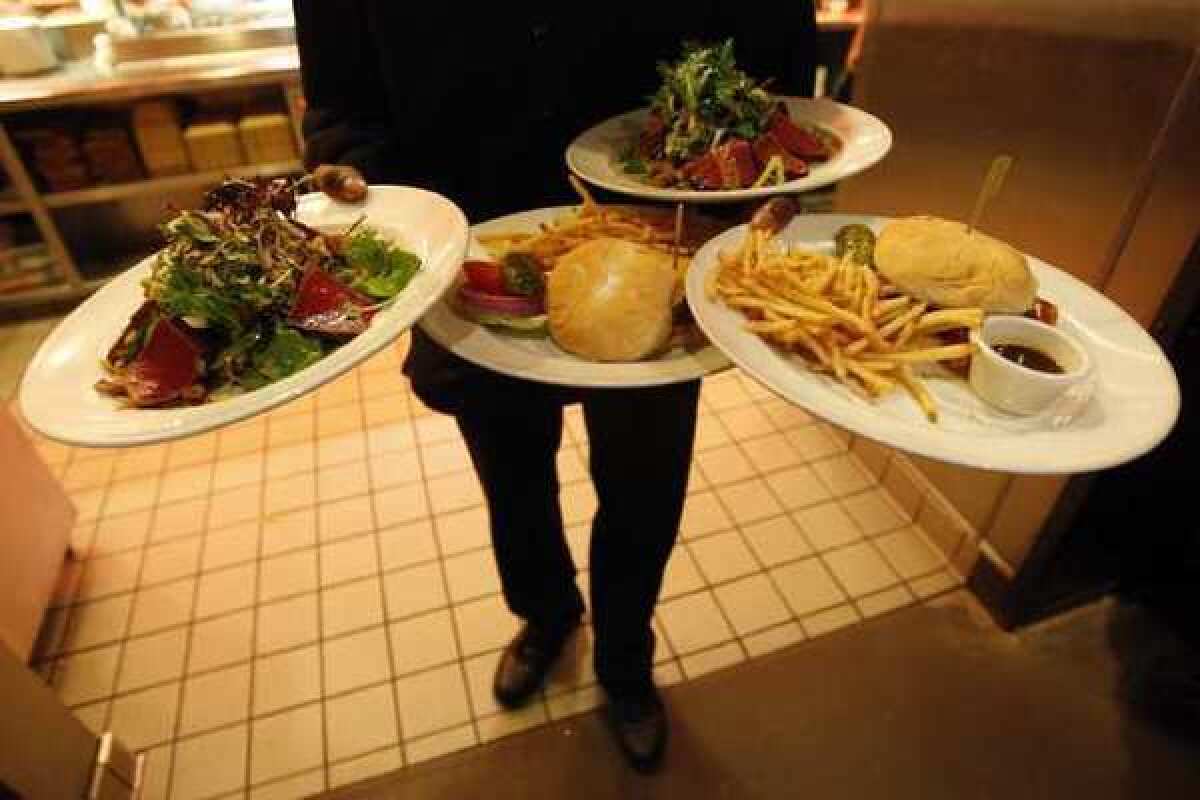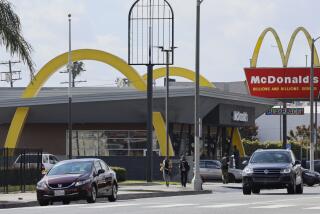Few American food industry workers are treated well, report says

The roughly 20 million workers involved up and down the American food chain make up a sixth of the country’s entire workforce -- a fifth if you exclude public employees. But they’re not treated especially well, according to a new report.
The Food Chain Workers Alliance interviewed some 700 workers and employers in food production, processing, distribution, retail and service sectors for its study. That includes employees at farms, slaughterhouses, warehouses, grocery stores, restaurants and more.
Researchers found that food sector workers outnumber healthcare, education and manufacturing employees and are responsible for annually producing $1.8 trillion in goods and services, more than 13% of gross domestic product.
But just more than 1 in 10 of them earn a livable wage. The vast majority don’t get basic benefits from their employers and don’t have many opportunities for advancement. The food industry, according to the study’s authors, could be endangering its workers and customers by forcing employees to operate in conditions of high stress and little payback.
Here are some of the report’s more dramatic findings:
- The median wage for a food industry worker is $9.65 an hour. Compared with the 8.3% of American workers on food stamps, 13.8% of food industry employees depend on the aid.
- Eighty-three percent say their employers don’t offer health insurance. More than 3 in 10 use the emergency room for primary care.
- Seventy-nine percent either don’t get paid sick days or don’t know if they do. Three in 10 don’t always get a lunch break.
- Eighty-one percent have never received a promotion. Minorities and immigrants face especially high levels of discrimination and segregation and rarely advance beyond the lowest-paying positions.
- Fifty-seven percent have suffered an injury or health problems on the job. More than half have picked, processed, sold, cooked or served food while sick -- an average of three days a year.
Of the 47 small and mid-size food system employers interviewed, many told researchers that competition from corporate conglomerates has stressed their bottom line. Some have adapted by focusing on niche markets, offering local, sustainable and organic products. Most, however, have lowered labor costs and boosted productivity to survive.
This spring, the California Supreme Court ruled that while employers must make it possible for workers to take scheduled breaks, they can’t be held liable if employees decide to work instead of rest. The issue had caused tension for years in the restaurant industry.
RELATED:
Employers not liable if workers skip breaks, court rules
L.A. program offers healthcare for illegal restaurant workers
Treat restaurant workers well, expect better business, study says
Follow Tiffany Hsu on Twitter and Google+







